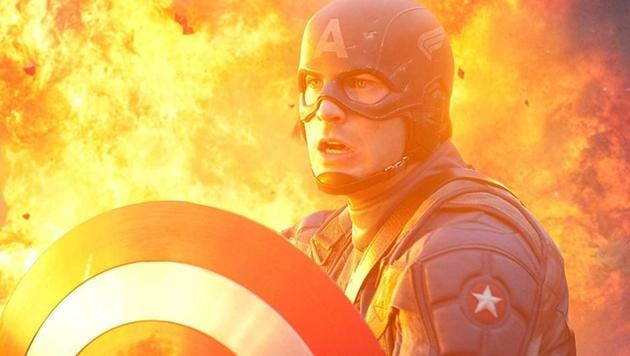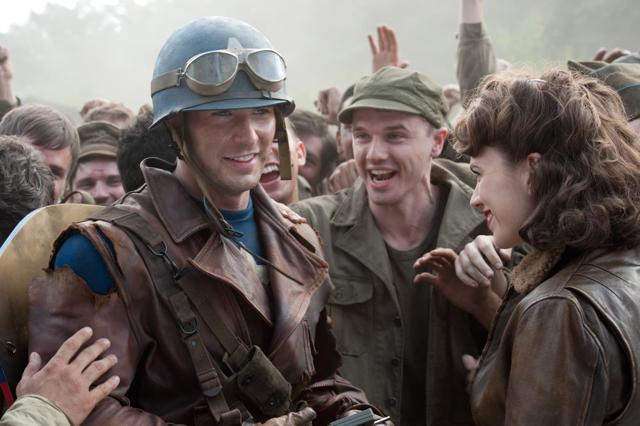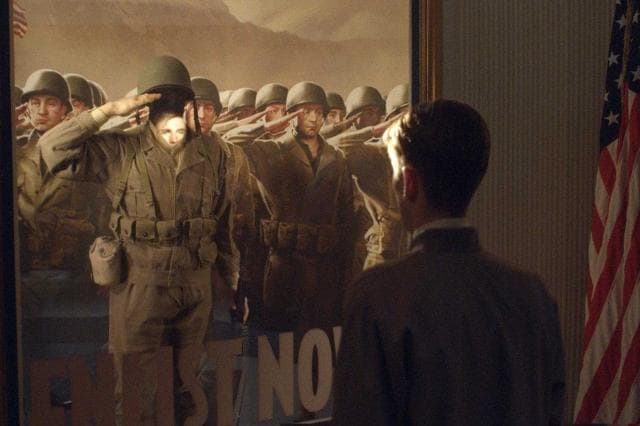In defence of Captain America The First Avenger: Marvel could teach Bollywood how to do nationalism right
The second lowest-grossing film in the Marvel Cinematic Universe could teach Bollywood how to do nationalism right. Ahead of Avengers: Endgame, here’s defending Captain America: The First Avenger.
There’s a reason why Captain America is the moral backbone and the emotional foundation of the Marvel Cinematic Universe. His evolution from glorified mascot to a full-fledged leader of the Avengers is a terrific example of the large scale intimacy that the MCU does so well. And under the direction of brothers Joe and Anthony Russo, Captain America has emerged as a character that fans truly adore; an earnest, black and white rebuke to our morally dubious times.

But this wasn’t always the case. In 2011, when the MCU was only four films old, and this week’s Avengers: Endgame was but a glimmer in Feige’s eye, Captain America made his (legit) cinematic debut with The First Avenger, a film that remains to this day the second lowest-grossing film in the entire franchise.
This was unexpected, considering especially that the Marvel movies seemed to have hit their stride by then - even Thor had managed almost half-a-billion dollars worldwide. And The First Avenger was the first film in the series to directly name-drop what was about to happen in just a few months - sort of like a combination of Batman v Superman: Dawn of Justice, and Captain Marvel. So it’s worth investigating why the film could only manage a measly $370 million worldwide in its entire run, a figure that Endgame will likely eclipse on opening day.

I watched The First Avenger for the first time since 2011 recently, and was blown away by what a tremendous film it is, and disappointed in (myself) and the rest of the world for not having given it the appreciation that it deserved. True, there is a vocal contingent of fans that makes it a point to champion the film whenever the opportunity arises, but you’d rarely find The First Avenger on anyone’s top five list.
Captain America: The First Avenger, in tone and quality, is very similar to DC’s Wonder Woman - both films are set within the stifling sandbox of a global war, and feature earnest heroes whose greatest superpower seems to be being able to identify decency where there might not necessarily be any.
In the most hopeless of times, when people begin to question each other, it is characters like Steve Rogers and Diana that remind us of what we are capable of.
With Steve in particular, this idea of exploring one’s true potential manifests quite literally, when he is taken in by a turncoat scientist and injected with a super serum that gives him super strength, yet retains the core of who he is as a person. As Dr Abraham Erskine says in the film, on the eve of Steve’s transformation, “Whatever happens tomorrow you must promise me one thing. That you will stay who you are. Not a perfect soldier, but a good man.” The serum doesn’t merely give Steve physical strength, it emphasises his innate decency, which is a great - albeit literal - metaphor for empowerment of the oppressed.

The themes that were first introduced in this film have been invoked several times during Steve’s journey, especially after the Russos took over from Joss Whedon as the de facto lead directors in the MCU. Notice how two of the most memorable moments in Captain America: Civil War were direct callbacks to The First Avenger.
Spotting a certain spark that perhaps reminds him of himself, Steve asks Peter Parker during the airport fight sequence, “You’ve got heart kid, where you from?” Peter’s answer - “Queens” - leaves a wry smile on Steve’s face, as if to suggest that his suspicions had been confirmed. The two really are alike. “Brooklyn,” he says, pointing at himself, before running off to fight someone else.
In Civil War’s decidedly more intense climactic battle between Steve and Tony Stark, he displays the same heart that Dr Erskine had first noticed in him all those decades ago, when he takes a blow, gets back on his feet, steadies himself and says, “I can do this all day.”
But while the Russos were doing right by Cap, Cap - always the gentleman - was reciprocating the favour. After the success of The Winter Soldier and Civil War, the Russos and their writers Christopher Markus and Stephen McFeely were all promoted to the Avengers gig. Thankfully, they’ve retained the services of the great Alan Silvestri, who is responsible for that iconic Avengers theme, which is perhaps one of only two memorable themes that Marvel has ever produced (the other being Ludwig Goransson’s Black Panther).
The foursome’s intimate familiarity with the character ensures that he stands out in an ever-expanding sea of superheroes. It also means that they’ve been able to iron out some of the perceived ‘problematic elements’ of the First Avenger.

While this is certainly a case of iconography overpowering actual plot, the jingoism in The First Avenger has always been controversial, although rather perceptive. It’s easy to imagine why. But it’s important to remember that Steve positively detested being a mascot and a political pawn. He was simply a product of his divisive times - and we certainly can’t argue with that. With hyper nationalism and right wing thought at an all-time peak, perhaps at its highest since the Second World War of The First Avenger, we realise what a powerful political tool a man dressed in star spangled red and blue can be - or a woman in saffron, for that matter.
Perhaps the most irrefutable proof of Steve’s neutrality comes in a scene in The First Avenger. “Do you want to kill Nazis?” Dr Erskine asks him, perhaps as a test. “I don’t want to kill anyone. I don’t like bullies; I don’t care where they’re from,” comes Steve’s reply, almost too perfect for words.
The First Avenger deserves a reappraisal, especially now, assuming what they’re saying about Endgame is true and that Steve might retire/die. If he does, in fact, end up succumbing - either to Thanos, or to an inter-dimensional vortex - it would be a testament to the lasting impact of the First Avenger that we even care.
Follow @htshowbiz for more
The author tweets @RohanNaahar






